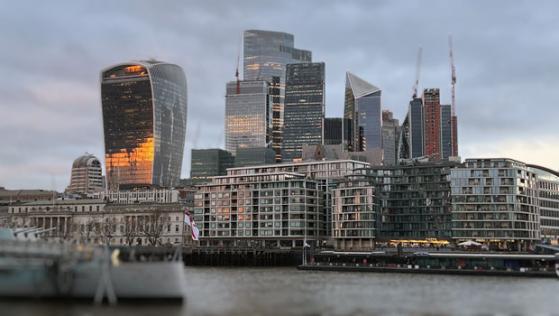Sharecast - The FTSE 100 was called to open 33 points higher at 7,375.
CMC Markets analyst Michael Hewson said: "US markets finished the session higher, while the slide in yields which we saw prior to the European close continued in the wake of the Powell press conference and looks set to see European markets carry on that momentum this morning with a higher open."
Overnight, the Fed left interest rates unchanged for the second straight meeting, as expected, with chair Jerome Powell saying that policymakers would be patient before making any further moves.
The Federal Open Market Committee concluded its two-day meeting in Washington by leaving the federal funds rate at a range between 5.25% and 5.5%.
"Tighter financial and credit conditions for households and businesses are likely to weigh on economic activity, hiring, and inflation. The extent of these effects remains uncertain. The Committee remains highly attentive to inflation risks," the FOMC said in a statement.
In a press conference, Powell said the FOMC would continue to "proceed carefully" and assess economic data as it comes through.
However, he indicated that they would wait for rate hikes and tighter financial conditions - given the recent run-up in bond yields to a 16-year high - to feed through to the economy.
On home shores, the BoE is widely expected to stand pat on rates when it makes its announcement at midday.
Hewson said: "Today it’s the turn of the Bank of England to come to its own decision on whether to raise rates and while we can expect to see a similar decision to hold rates as the Fed yesterday, the nuances of any decision are likely to be starkly different, although we can be fairly confident that the UK central bank is down when it comes to further rate hikes.
"Having hiked 14 times in a row it seems certain that the bar to further hikes is high, and as such we’ve seen a switch in narrative that articulates a policy of higher for longer.
"There is certainly concern among some of the more hawkish members of the MPC that higher rates are needed, and we can expect the likes of Catherine Mann to push this line.
"She is likely to be in a minority in the short term if inflation continues to look sticky, however if as expected inflation slows further when the October numbers are released later this month, the prospect of further rate hikes is likely to diminish further."
In corporate news, oil giant Shell (LON:RDSa) posted a third-quarter profit of $6.2bn, broadly in line with estimates, as it announced a $3.5bn share buyback over the next three months.
Shell said it benefited from higher oil prices and refining margins.
J Sainsbury (LON:SBRY) boosted its full-year outlook after strong grocery sales throughout the first half.
The supermarket chain, which also owns Argos, said grocery sales in the 28 weeks to 16 September were ahead 10.1%, while general merchandise sakes nudged up 1.1%.
Sales at Argos rose 1.7%, but clothing sales were down 8.4%, hit in part by the unseasonable weather.
On a like-for-like basis, sales excluding fuel were up 8.4%.
Group revenues excluding VAT were 3.5% higher at £17bn, but underlying pre-tax profits were flat at £340m, after financial services profits fell sharply, down 32% to £13m. Sainsbury said the division had been impacted by higher costs, as well as customers regularly paying off credit card balances.
Sainsbury said it had gained volume from grocery competitors during the period, enabling it to grow ahead of the market and make "record" market share gains.
Smith & Nephew said that sales growth is now expected to be at the top end of guidance after a strong third quarter, though it warned that margins would likely not grow as much as hoped.
Underlying revenues for the full year are now expected to be "towards the higher end" of the guided range of 6-7%, which had already been upgraded at the half-year stage from 5-6%.
Trading profit margins, however, are now expected to be "around 17.5%", reflecting headwinds in China. This was a slight change from earlier guidance of "at least 17.5%", and compares with a trading profit margin of 17.3% in 2022.
BT (LON:BT) reported adjusted revenue of £10.4bn in its half-year results, showing a 3% increase driven by higher sales of fibre-enabled products, inflation-linked pricing, and improved trading in the business segment.
Adjusted EBITDA grew 6% to £4.1bn, attributed to revenue growth, cost control, and reduced cost inflation.
Despite an increase in net debt due to pension contributions, BT said it anticipated continued revenue and EBITDA growth in the full year, with capital expenditure around £5bn and normalised free cash flow expected to be in the range of £1bn to £1.2bn.
